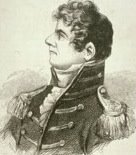Bishop Epting: what we are being asked to do
Bishop Epting has served on the Standing Commissions on Evangelism and Ecumenical Relations, as liaison from the House of Bishops to the National Episcopal Cursillo Committee, and on the Executive Council. He has made significant contributions to the success of the Called to Common Mission agreement with the Evangelical Lutheran Church in America. He served as president of Province VI and, as such, sat on the Presiding Bishop's Council of Advice. He has served as Bishop Visitor to the Society of the Transfiguration, a community of Episcopal nuns in Cincinnati, and as co-patron of Affirming Catholicism, a renewal movement of catholic faith and practice within the Episcopal Church and wider Anglican Communion.
He has a blog called "That We May all be One." A quick glance at Louie Crew's Anglican Pages tells you that Bishop Epting has come down on different sides of different issues affecting our Church.
Bishop Epting has two entries on the primates meeting. In his most recent one, he makes two very good points about the substance of the proposals. Here is what he says about the Pastoral Council:
We now have a proposal for a "Pastoral Council" (the majority of which would be appointed by Primates outside the Episcopal Church) to work with disaffected congregations and dioceses in cooperation with the Presiding Bishop and the Episcopal Church....I hope we will take the requests seriously and find a way forward, but I have to say they are hugely problemmatic! To give such authority to a Pastoral Council which is a totally extra-canonical body made up of those not subject to the Doctrine, Discipline and Worship of the Episcopal Church seems very dangerous to me.
On the demands to the House of Bishops:
And we have a request for the House of Bishops to "make an unequivocal common covenant that the bishops will not authorize any Rite of Blessing for same-sex unions in their dioceses or through General Convention" and "confirm that Resolution B033 of the 75th General Convention means that a candidate for episcopal orders living in a same-sex union shall not receive the necessary consents."Bishop Epting ends his comments with a call to prayer and discernment on these matters. Our Presiding Bishop has also invited us more than once, to reflect on these very points, as has the President of the House of Deputies.
....
And, while I would hope the House of Bishops could agree to a covenant not to authorize the blessing of same-sex unions until a broader consensus emerges (while preserving the right of pastoral provisions to minister to gay and lesbian people as the Windsor Report itself allows), I would guess there will be bishops and dioceses who will not agree to this. Therefore, we are set up for some kind of vote which will divide and not unite us. Once again.
I also believe it is unnecessary, and unhelpful, for the House of Bishops to begin ”confirming” or re-affirming actions of General Convention. We have passed B033. All that remains is for us to live up to its provisions. So far, we have.
The people and institutions offering these proposals certainly believe they have very good reasons for doing what they propose.
We must discern in this period if those reasons are our reasons.
We must also discern how best to convey the fruits of our discernment.






